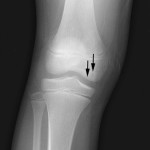Why Do You Have A Passion For Working With Athletes?
This should be easy to answer, shouldn’t it? If you are reading this post then you must have some interest in sports physiotherapy.
Well, when I decided to write a blog post about why I love working with athletes I went to the “think-tank”. At a social event (going to watch the rugby) where I was surrounded by physiotherapists with experience working with athletes from various sports, I asked them what are the perceived benefits of working with athletes. The intelligent and insightful responses that followed seem to fall under seven categories, which are discussed below.
It was interesting to hear the thoughts of others, and how they echo and reinforce my own. Working with athletes is clearly my passion, however, I have never stopped to qualify and contemplate the reasons why. Now I have, and there is so much to discuss! Therefore, I have decided to spread it over two posts (Stay tuned! The second part of this topic will be posted later this week).
The reasons why sports physiotherapists love working with athletes include:
1. Better Job Satisfaction
This is the clear number one reason why I love to work with athletes. A sports physiotherapist, like the athletes, must always strive for excellence. You can never be happy to settle for second best. An athlete wants the quickest RTP possible and when returning to play must have the best possible athletic performance. Therefore, the sports physiotherapist requires advanced problem solving and great clinical skills to meet these often strict RTP time-frames.
Sports physiotherapy is also a constant process of learning and evolution. This is evident by the constant evolution of sports medicine and the supporting evidence base. There is money consistently being invested in the development and study of new clinical techniques in sports injury management, and the sports physiotherapist must stay abreast of these changes. Therefore, your job never becomes stale and you are always trialling new techniques, new exercises and new rehabilitation options.
2. Greater Involvement of the Athlete
I feel athletes often trump the “normal” patient due to greater active involvement in their injury and the rehabilitation process. Unlike other groups in physiotherapy, such as the injured worker (please excuse the gross generalisation), the athlete is often interested in doing everything possible to rehabilitate their injury. This increased motivation will lend itself to non-compliance becoming a non-issue.
In my experience, assessment of an athlete is a simpler process than other patients. The athlete often has a good awareness of their own body, and can often deliver a nice, concise and simple subjective examination. Also, an athlete’s history of previous or other injuries may help the diagnostic process. For example: “I had a Grade 2 Medial Gastrocs tear last season, and this feels exactly the same.” Ok, its not always that easy.
3, HIgher Baseline Levels of Fitness
Its no secret that athletes have a higher level of baseline fitness including cardiovascular and strength. This often means an absence of the components that can make treating other patients punishing. Due to the athlete being “healthier”, there is a decreased occurrence of more complex comorbidities (yes, I am aware that this can sometimes make treating other patients more interesting). But it allows me to focus on what I love, working with sports injuries.
I have also found that due to their training history and involvement with health professionals athletes often have a good awareness of certain exercises. It is much more efficient when you do not have to explain the concept of a hamstring, a hamstring curl and a hamstring stretch to a patient.
4. Greater Scope of Practice
As a sports physiotherapists I feel I have a greater scope of practice than some other physiotherapists. Rarely in the other realms of physiotherapy are you present when the injury takes place, follow your patient through the rehabilitation process, and see them on the other side. For example: a neurological physiotherapist is not present when a patient has their stroke but may be involved in early stage rehabilitation. However, after some time this patient will move from the acute wards to other wards such as rehab. There is less “continuity of care” under this system.
However, I deal with the entire ‘injury cycle’ from acute assessment to diagnosis and right through to re-injury prevention. Additionally, this includes high-level sport-specific training which is often the most exciting and frequently not relevant to normal patients. Thus, the successful sports physiotherapist will deliver a multi-faceted approach to enhance outcomes.
Stay Tuned!
As I said when it comes to loving sports physiotherapy there was too much gold to include in just one post! I plan to post the second half of this topic later this week. So stay tuned for more reasons to love sports physiotherapy (not that you need them), check them out here.
What Are Your Thoughts?
What are your thoughts on working with athletes? Let me know in the comments or catch me on http://www.facebook.com/TheSportsPT” target=”_blank”>Facebook or http://www.twitter.com/TheSportsPT” target=”_blank”>Twitter. Are you a physiotherapist or physical therapist looking to promote your own clinic, http://directory.thesportsphysiotherapist.com/add-your-clinic/” target=”_blank”>check this out.
Related Posts
Comments
Trackbacks
-
[…] If you decided to read this backwards, check out the first part of the post here. […]
-
Thank you……
I love the site…










looking foward for more of such articles. nice job.!
Actually, I like to work with athletes cause, they make me feel young !!!!!
Ok, be honest, I like their motivation…they have targets, goals. They cooperate, are listening to you….the whole treatment plan is in high value, and me as a therapist I must be more focused, more educated, more motivated…..so the whole idea working with athletes, makes you better and better, you make congress during the time, and in the end you receive more and more happiness, because you succeeded ….
Nice satisfaction after they get better, better compliance and implication from the athlete,